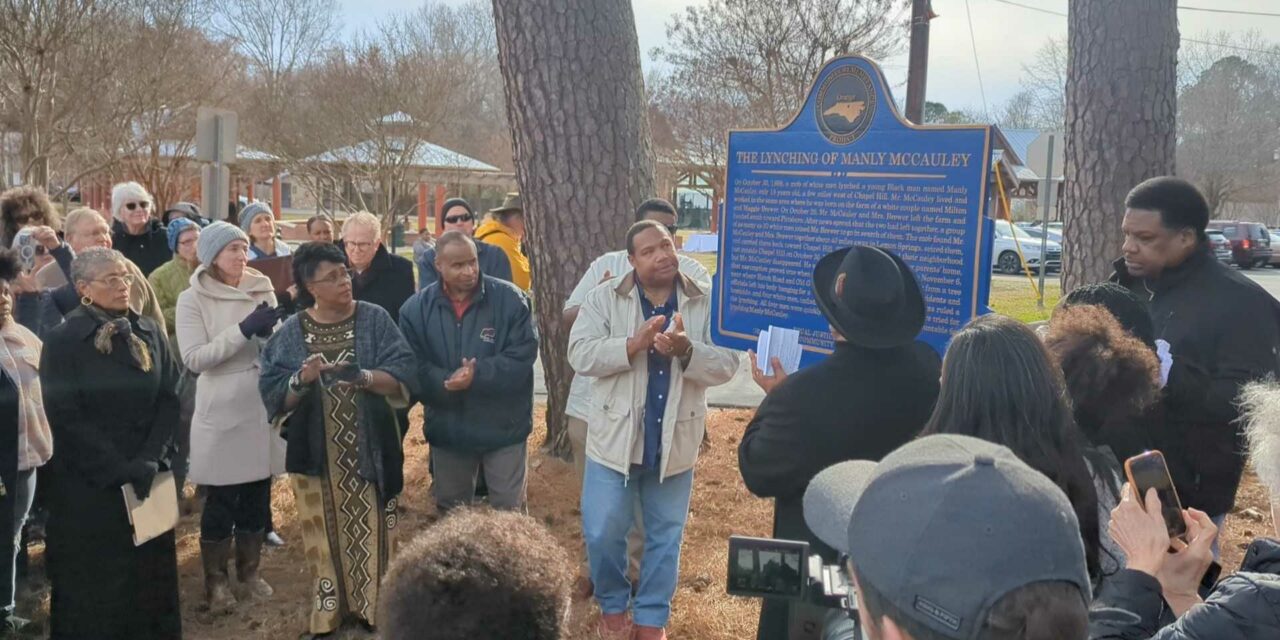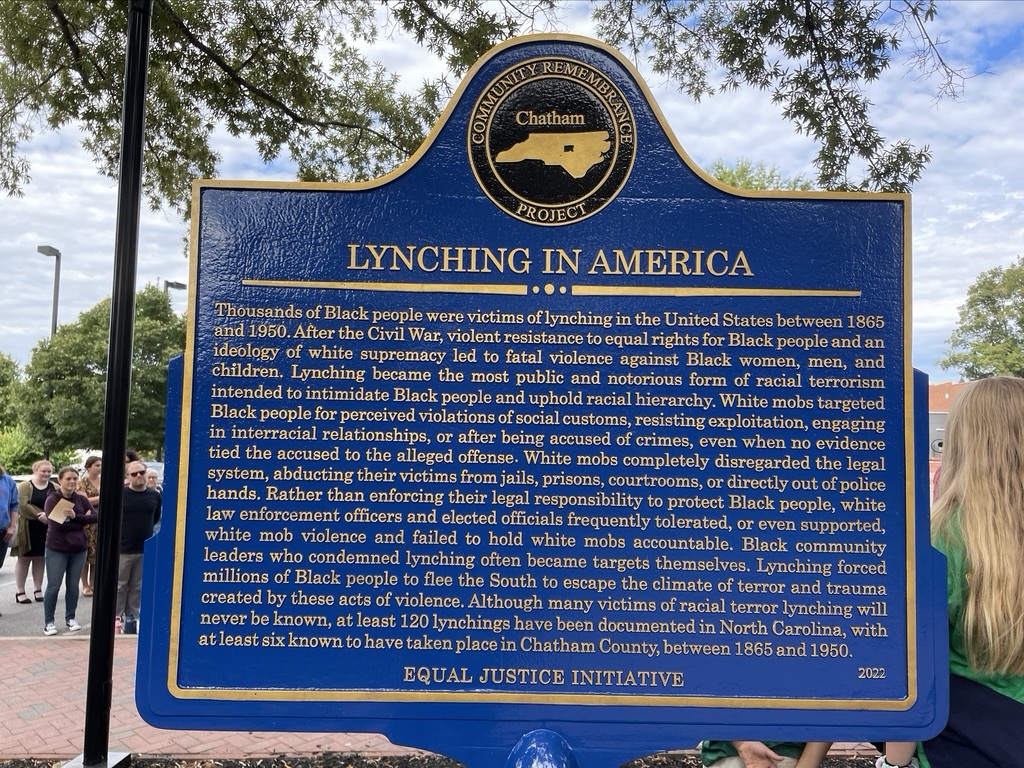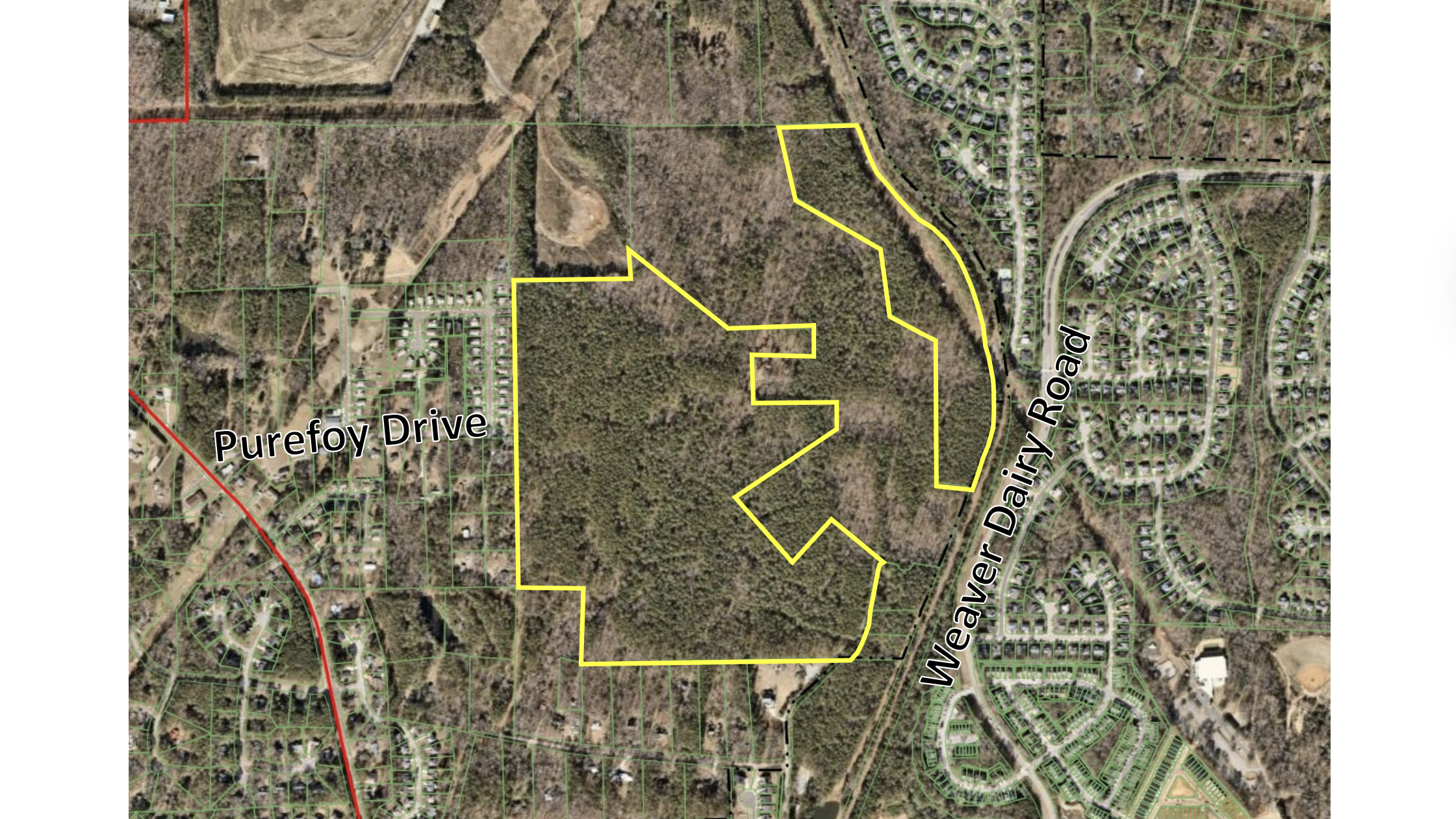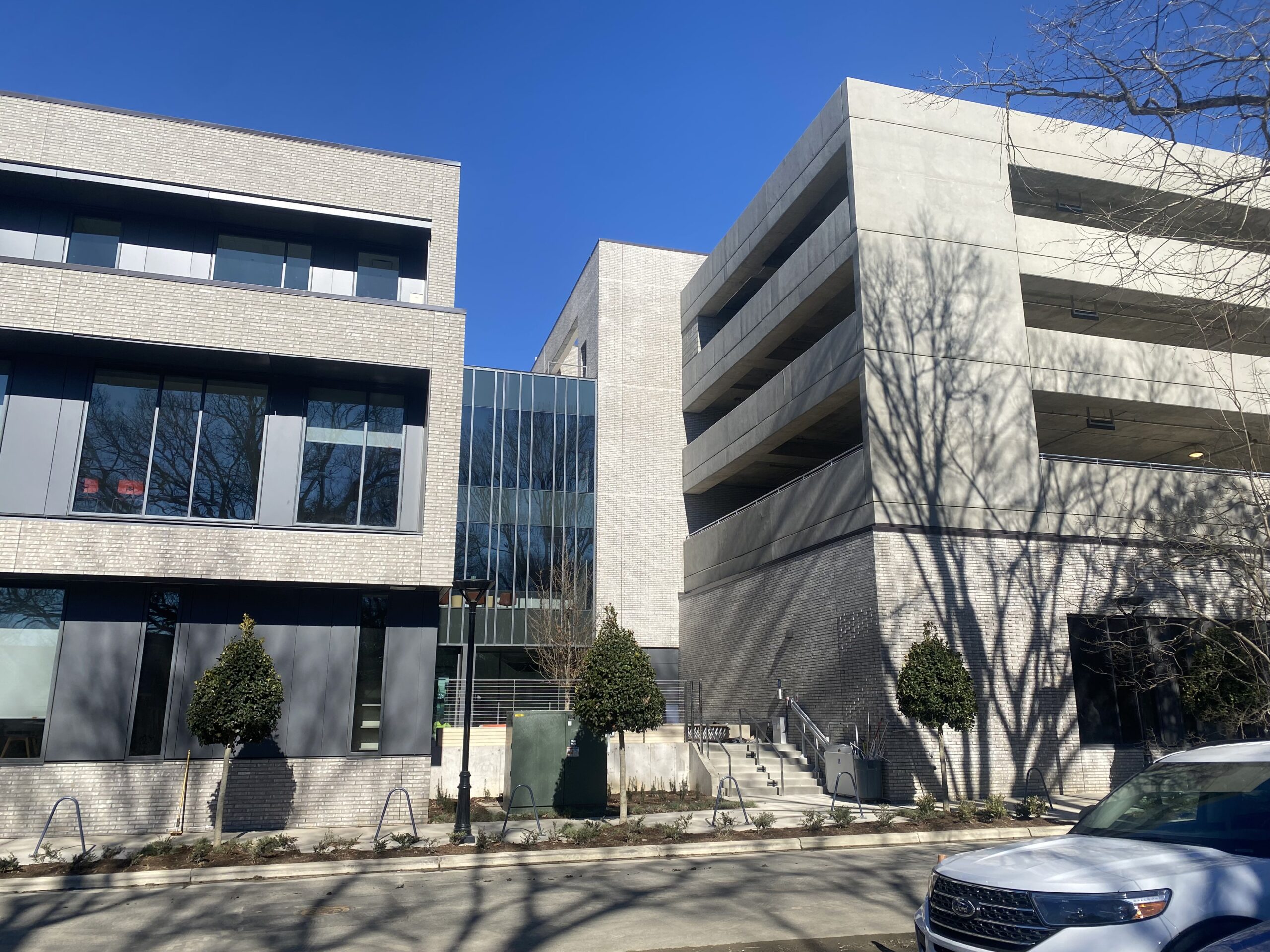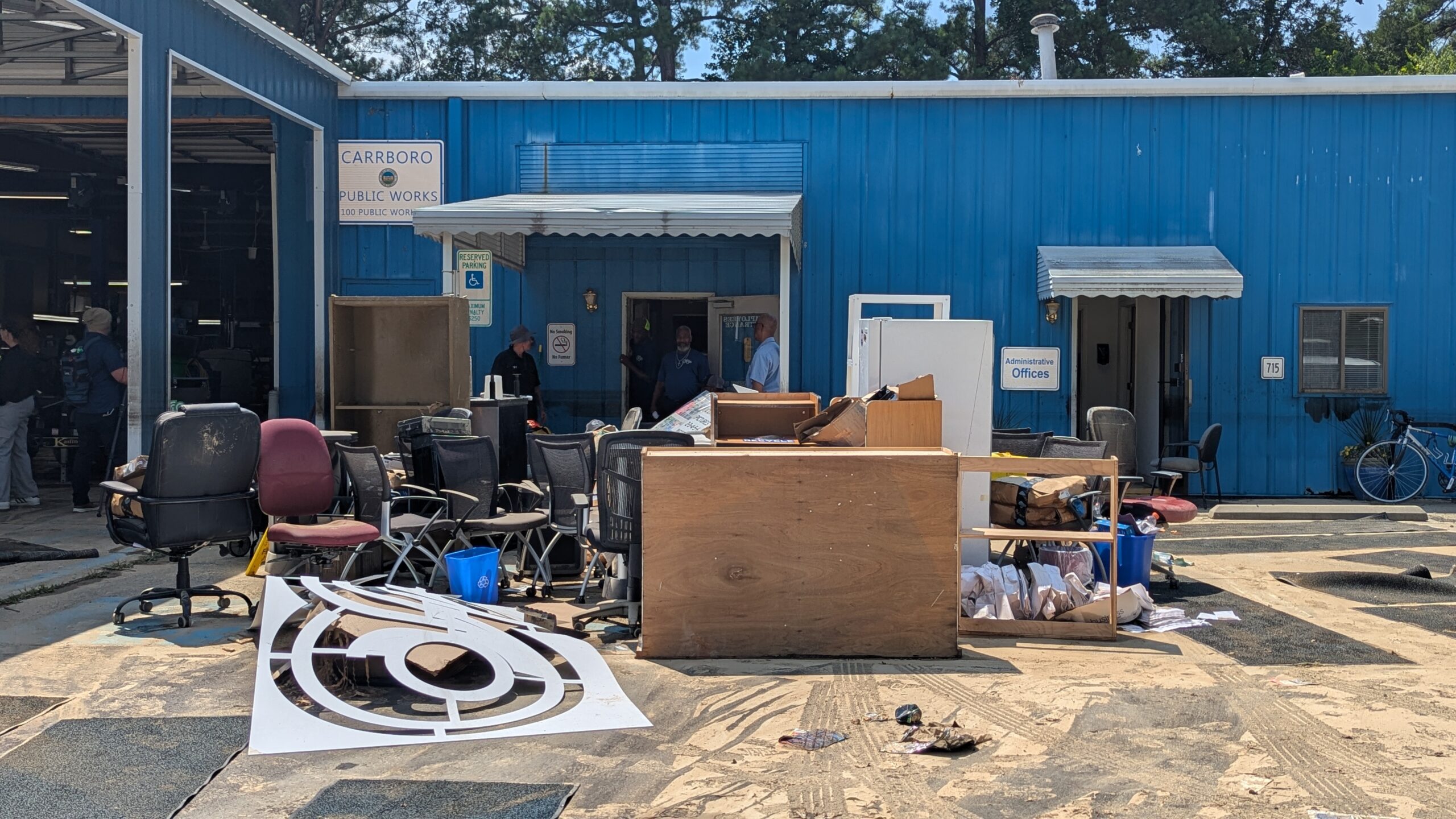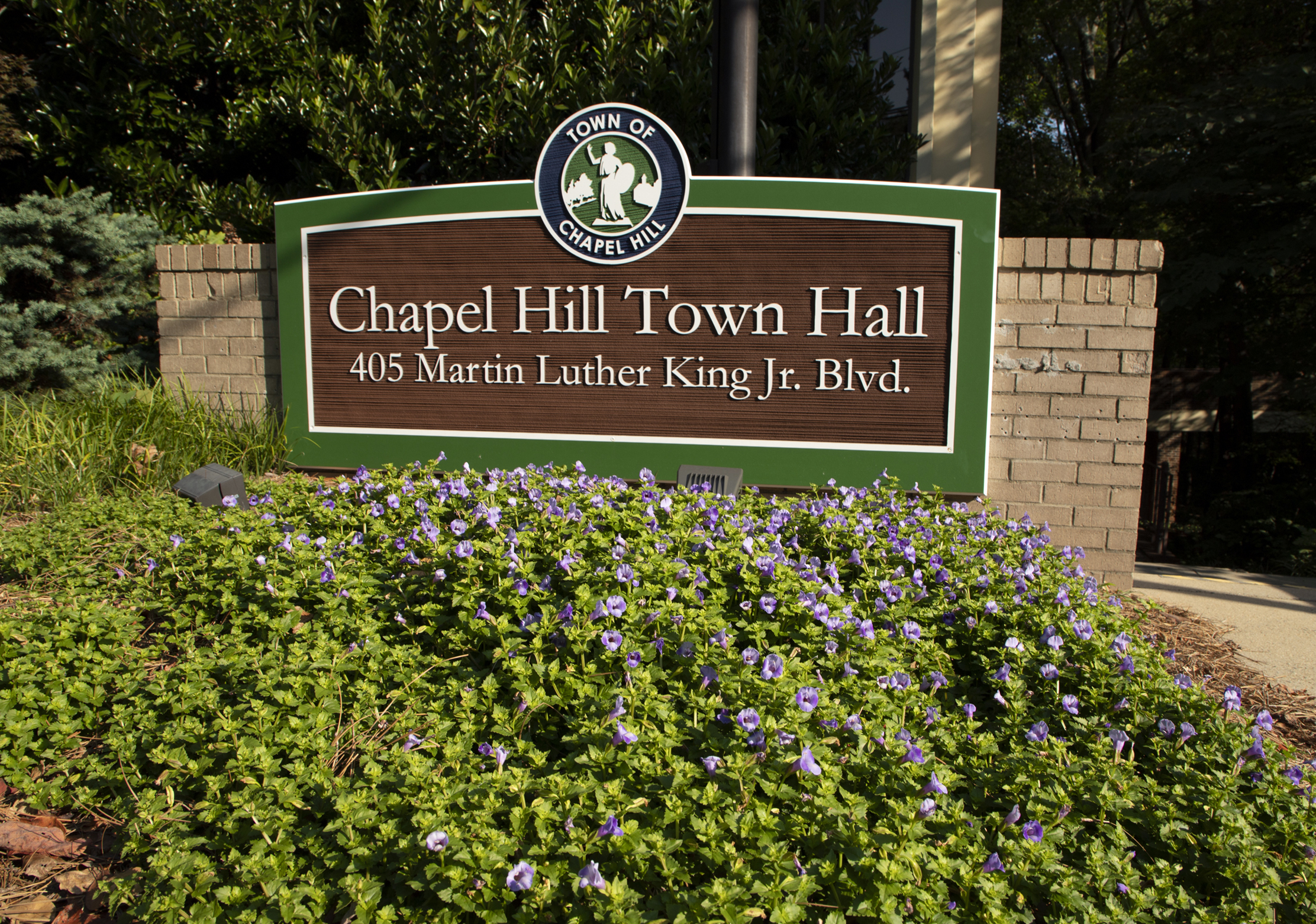Dozens of people crunched over pine needles and stepped onto the grass under trees beside Laurel Avenue and Carrboro Town Hall on Sunday, slowly approaching a historical marker with a black shroud over it. Minutes later, the fabric was thrown back to reveal a blue and gold plaque with a title emblazoned at the top.
“The Lynching of Manly McCauley”
McCauley was a Black man killed in 1898 by a mob of white men after he had seemingly eloped with the wife of a prominent — but also reportedly abusive — Orange County farmer. The mob lynched the 18-year-old near Hatch Road and Old Greensboro Road, west of Carrboro. For years, his name went largely unspoken by those in power and by the local governments. But recent efforts by the Orange County Remembrance Coalition, in partnership with the Town of Carrboro, helped change that and reckon with that moment in local history.
Before the crowd migrated over to the historical marker, it had gathered under the pavilion at the Carrboro Town Commons for a dedication ceremony. The event featured speeches from elected officials, performances from poets and musicians, and recounting of McCauley’s story by researchers who spoke Sunday to honor his legacy. Distant relatives of McCauley’s sat in the crowd, taking in the scene.
The Orange County Remembrance Coalition has worked to recognize several victims of racial lynching in the area, with the effort to memorialize McCauley dating back several years. The group petitioned the Equal Justice Initiative for McCauley to have a permanent local marker, after the national nonprofit included the lynching victim in its National Memorial of Peace and Justice in 2018. The coalition conducted a soil collection for McCauley in November 2019 near the anniversary of his murder and at the site where it’s believed to have taken place, as the group has for other lynching victims. That earth and jar sat in front of the speakers’ podium on Sunday as a physical reminder to the crowd.
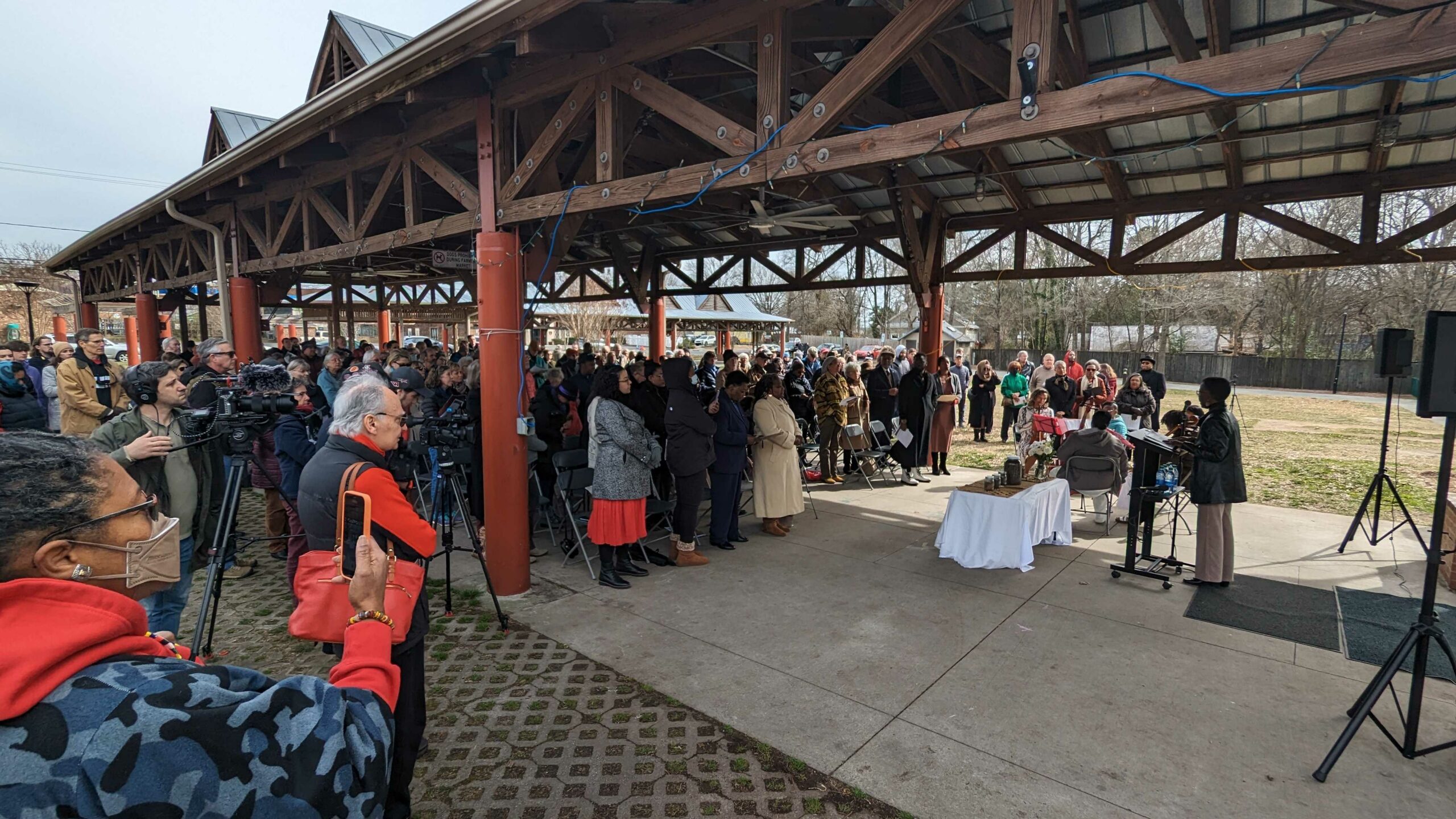
Carrboro residents and community members gather to hear opening remarks from Carrboro Mayor Barbara Foushee on Sunday, February 19, 2024.
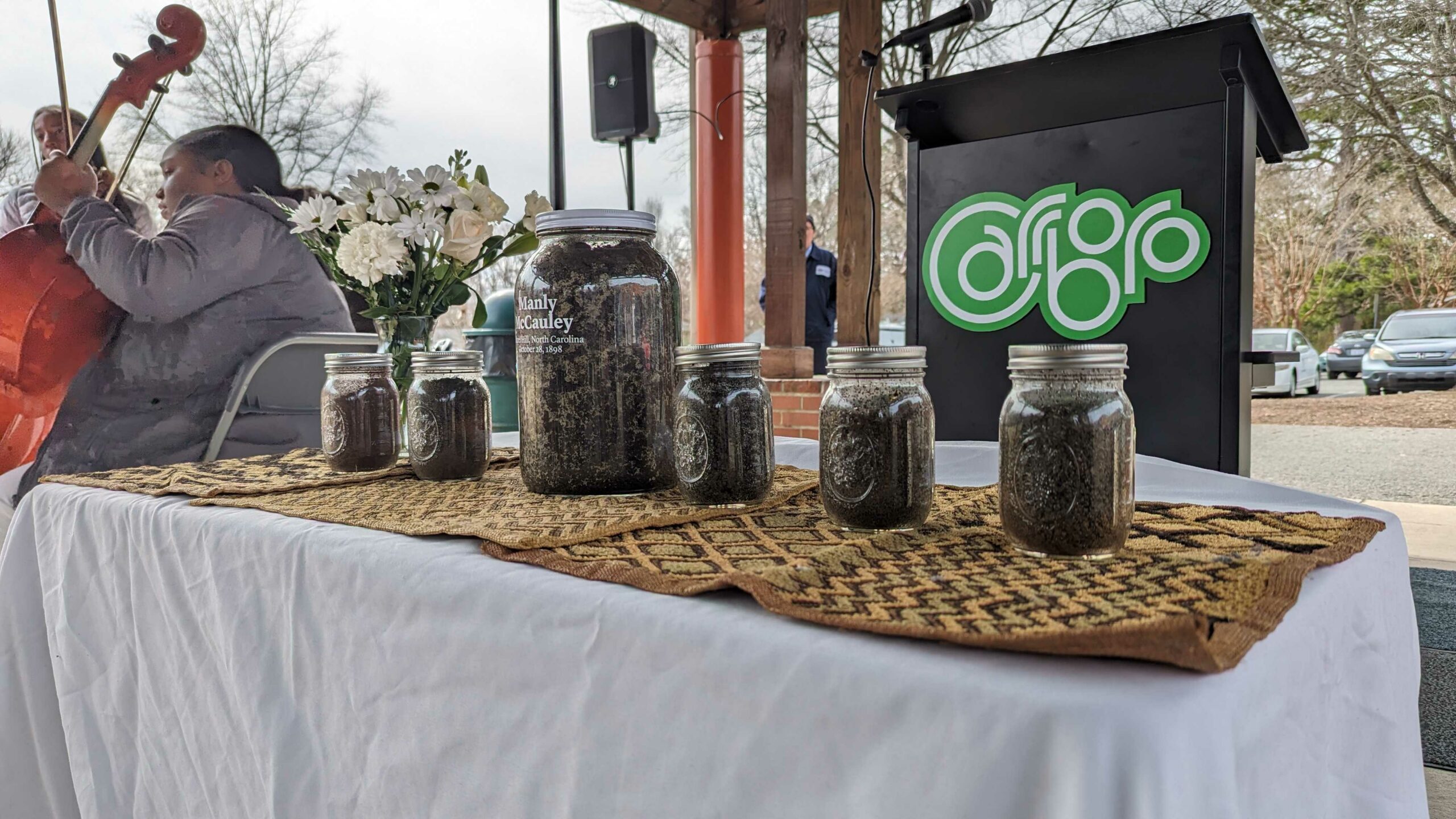
The soil collected at the lynching site of Manly McCauley sits on display during Sunday’s dedication ceremony for a plaque honoring McCauley.
The marker will also serve as a physical reminder — both in Orange County and in Montgomery, Alabama, where the Equal Justice Initiative is headquartered. A duplicate marker will also be placed at the National Memorial of Peace and Justice in the coming months.
Renée Price, who serves as the District 56 representative in the North Carolina House, is the co-chair of the Orange County Remembrance Coalition. She spoke about how McCauley is one of six victims of racial terror the organization has worked to recognize, with the group aiming to acknowledge the humanity of those who died as part of “inhumane injustice.”
“You, by gathering here today, are assuring that African Americans and our history is known, understood, and appreciated,” said Price. “By saying their names — Manly McCauley, Cyrus Guy, Daniel Morrow, Jefferson Morrow, Washington Morrow, and Wright Woods Malone — we celebrate them, and the lives they lived.”
U.S. Representative Valerie Foushee, who is a Chapel Hill native and whose district Orange County falls in, also spoke at the dedication ceremony. She said racial lynchings, including the more than 120 reported in North Carolina, are “a stain on our nation’s history” — but the congresswoman stressed her belief in telling the full truth of the past.
“The importance of this cannot be overstated,” said Foushee, “and it is critical for us to confront and dismantle the darkest part of our past for our children, our grandchildren, and generations to come. Thank you everybody who was involved in this important effort. The fight for true equality and justice remains, and let us come together to preserve the truths of our past as we work together to build a safer, inclusive and just future for all.”
Reginald Hildebrand – who is a retired professor of African and Afro-American Studies at UNC-Chapel Hill – delivered a keynote address Sunday, recounting the reported facts about McCauley’s death and how it was used as a political sign during a surge of white supremacy in 1898. He pointed to newspapers writing how McCauley’s fate and Brewer’s departure with him could serve as “a lesson to white folks” who did not support the Democratic party, which at the time was more racist and regressive in its views. McCauley’s lynching came 11 days before another racial terror incident seminal to the history of North Carolina: the Wilmington Massacre, in which more than 60 Black residents died after a white mob attacked and burned parts of the coastal town.
Hildebrand closed his remarks by sharing how there is a lack of reporting on whether McCauley was ever given a funeral or had a formal burial site.
“The historic marker that we are dedicating here today will also serve as a marker to honor and remember a life, like a headstone,” he said. “Today, we also pay respects to his family. Today, our whole diverse community is saying, ‘That was our nephew, that was our son.’
“His life and this history matters,” Hildebrand concluded, “and we will not let it be forgotten.”
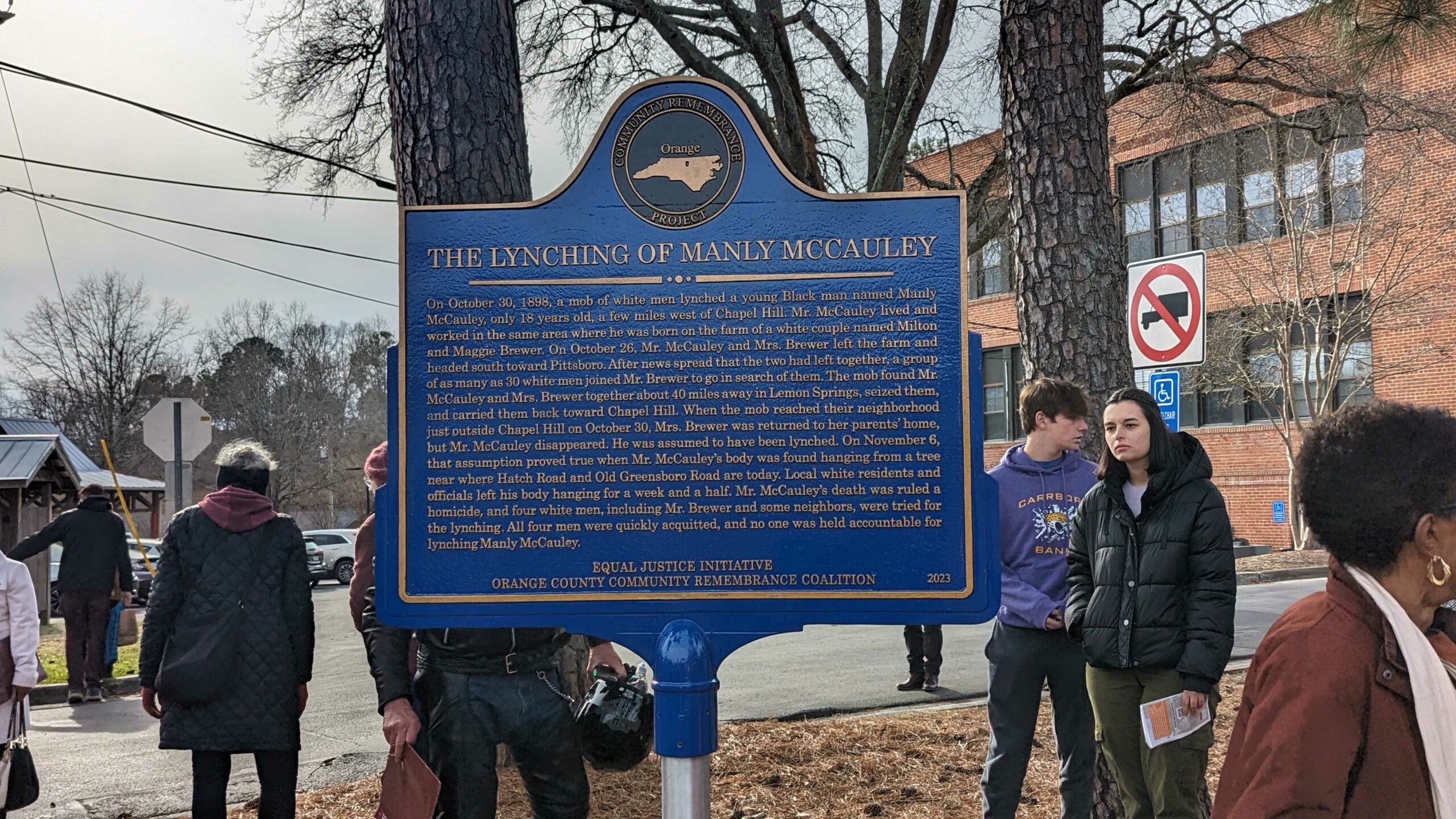
The full inscription about Manly McCauley’s life on the historical marker, which was orchestrated by the Orange County Remembrance Coalition and the Equal Justice Initiative.
Chapelboro.com does not charge subscription fees, and you can directly support our efforts in local journalism here. Want more of what you see on Chapelboro? Let us bring free local news and community information to you by signing up for our newsletter.

